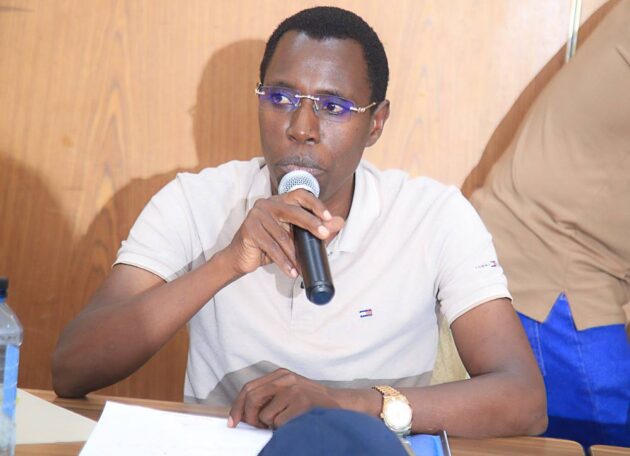
KNLS Seeks Sh112mn for Urgent Rehabilitation of Deteriorating Libraries, » Capital News
NAIROBI, Kenya, May 2 — The Kenya National Library Service (KNLS) has appealed to Parliament to allocate Sh112 million for the rehabilitation of three of its most critical and severely dilapidated facilities, citing years of neglect and mounting structural decay.
Appearing before the National Assembly’s Committee on Sports and Culture, KNLS Chief Executive Officer Charles Nzivo painted a bleak picture of the current state of the Maktaba Kuu (KNLS Headquarters), Buruburu branch, and Nakuru library, describing them as being in urgent need of repairs to ensure continuity of public service.
“Maktaba Kuu, which is our central hub, along with the Buruburu and Nakuru branches, are in an advanced state of disrepair. Some of these facilities have not been maintained in over a decade,” Nzivo told the Committee.
Nzivo underscored the strategic importance of the three libraries in providing nationwide access to knowledge and information services.
He appealed to the Committee to advocate for increased budgetary allocations to restore the facilities to functional standards.
In addition to the urgent need for rehabilitation, the KNLS boss outlined broader plans to expand the agency’s reach by establishing satellite centres in six underserved regions—Busia (Western), Kirinyaga (Central), Homa Bay (Nyanza), Kitale (North Rift), Kajiado (South Rift), and two more in Mandera and Wajir (North Eastern).
These centres, he noted, are part of a long-term decentralization strategy to improve literacy and public access to information across the country.
The CEO further highlighted a serious human resource shortfall, stating that KNLS currently operates with only 165 staff members against an optimal establishment of 317.
This, he warned, significantly hampers service delivery and the agency’s capacity to meet its mandate.
Nzivo also briefed the committee on additional strategic initiatives, including plans to establish a national Conservation and Preservation Laboratory and the Kenya School of Professionals—two flagship projects aimed at elevating Kenya’s archival and professional training standards in the library sector.
“We are committed to transforming the library landscape in Kenya, but we cannot do it without sufficient investment,” he said, urging lawmakers to prioritize funding for the agency.
Committee Chairperson Wamacukuru Gathua acknowledged the importance of KNLS in advancing the country’s knowledge economy and committed to pushing for the necessary allocations.
“The Committee will ensure that adequate funds are allocated to KNLS through the National Treasury so that it can fulfill its national mandate,” Gathua assured.
Busia MP Catherine Omanyo, while supporting the funding appeal, encouraged KNLS to diversify its income sources.
“It’s clear that KNLS has revenue-generating potential. Consider scaling up these streams to invest in self-sustaining projects,” she advised.
Suba South MP Caroli Omondi questioned the systemic neglect of key branches such as Buruburu and Nakuru, noting that the dilapidated state of these facilities should have been addressed in earlier budgets.
He also called on the agency to accelerate the digitisation of its services to increase access and resilience.
The Committee is expected to review KNLS’s funding request and issue its recommendations ahead of the next budget cycle.